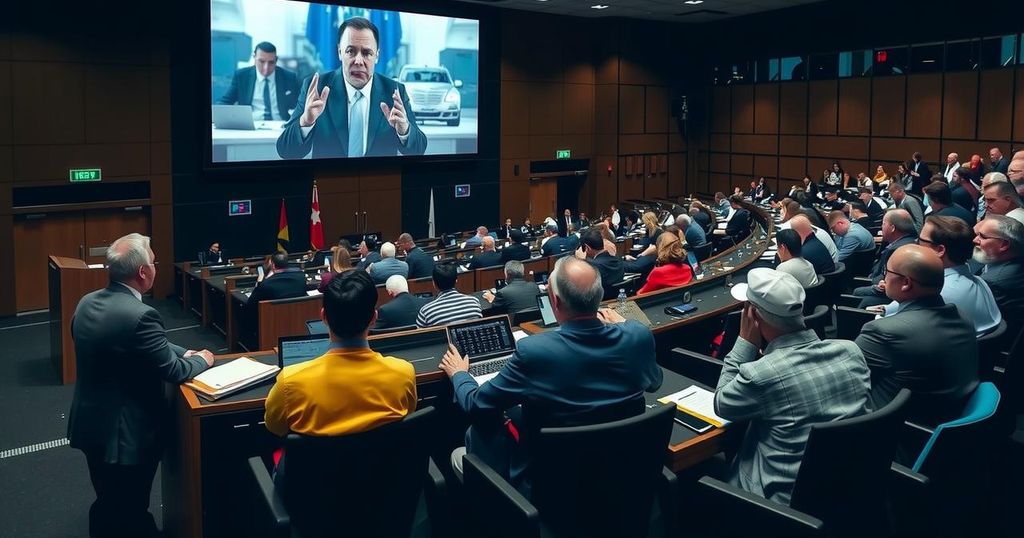COP29 Delegates Discuss Enhancing Global Safety Through Climate Action

At the COP29 summit, delegates, concerned about escalating military spending amid climate crises, evaluated how climate action can enhance safety and contribute to global peace. Experts highlighted urgent strategies, including transitioning to renewable energy and fostering better relationships with nature, as key to addressing the complex links between climate change and conflict.
On November 18, 2024, during the ongoing COP29 summit in Baku, delegates focused on critical discussions surrounding climate finance and its role in ensuring global safety and peace. Amidst escalating military expenses and the growing threat of conflict, participants, including representatives from Soka Gakkai International and various Quaker groups, explored how climate action could be effectively aligned with strategies to foster a more secure world. Event moderator Lindsey Fielder Cook noted the paradox of countries advocating for increased climate financing while simultaneously escalating fossil fuel extraction, raising concerns about the broader implications for global stability. Various experts contributed to the dialogue, highlighting the intersections between climate change, military expenditure, and human security. Andrew Okem from the IPCC underscored the urgency of transitioning to renewable energy and adopting nature-based solutions to build climate resilience. He stated that further delays in adaptation efforts could jeopardize future sustainable development. Lucy Plummer from Soka Gakkai International emphasized the need to redefine human relationships with nature, advocating for peace with the environment to combat the current climate crisis effectively. Dr. Duncan McLaren discussed the inadequacy of emissions cuts alone in addressing the climate emergency, advocating for carbon removal technologies that could help repair humanity’s relationship with the earth. Other speakers, such as Harriet Mackaill-Hill and Deborah Burton, examined the detrimental effects of military spending on climate finance and the broader implications for human safety. They highlighted that military-related activities contribute significantly to global emissions and impede efforts towards ecological justice.
The discussions at COP29, primarily centered on climate finance and action, are critically underscored by concerns regarding peace and stability in the current geopolitical landscape. With military spending at unprecedented levels, exacerbated by ongoing conflicts worldwide, the need for coherent strategies that integrate climate action with peace-building efforts has become increasingly evident. Participants at the COP29 summit recognize that effective climate policies are inseparable from discussions on human security and global stability. These dialogues aim to challenge the prevailing narratives that depict climate and peace as distinct issues, aiming to forge holistic solutions that address both climate change and the causes of conflict.
The COP29 dialogue prominently featured the urgent need to connect climate action with global peace and security. Experts presented a compelling case for viewing climate finance not merely as a tool for environmental remediation but also as a mechanism for fostering human security. As military spending continues to divert essential resources away from sustainable solutions, the summit underscored that achieving lasting peace will require an integrated approach that recognizes the interdependencies between climate health and human rights. Attention must be turned towards disarmament and redirecting funds from military efforts to ecological restoration and community resilience building.
Original Source: www.ipsnews.net






